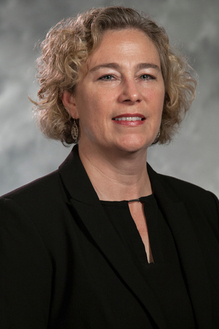Duke medical experts warn of potential harms of new anti-LGBTQ bills

A panel of medical experts from Duke University spoke out Wednesday against two new bills that would place restrictions on LGBTQ youth, their schools and their families.
Senate Bill 49 would, among other provisions, require teachers to notify parents if a student questions their own gender. House Bill 43 would make it illegal for anyone under 18 to receive gender affirming care that is considered the standard of care among doctors who treat transgender youth and myriad medical associations.

“There is a high likelihood both these bills…would have reverberating impacts on the health of LGBTQ+ children and adults throughout North Carolina,” Dr. Sarah Wilson, assistant professor in the Department of Psychiatry and Behavioral Sciences and co-lead of the Duke Sexual and Gender Minority Health Program.
With transgender youth already experiencing outsized levels of depression, anxiety and suicidal ideation, the panel of experts said outing young LGBTQ people who may not be ready and denying them the treatment backed up by decades of research could be disastrous.
Dr. Dane Whicker, a clinical health psychologist at Duke Health who provides therapy for LGBTQ+ adolescents and adults, said many LGBTQ youth don’t have supportive homes. Often friends at school and understanding teachers or counselors are among the only people to whom they can speak openly.
“Working with schools has been a really important part of our clinic’s practice,” Whicker said, “And working with parents to help them advocate for safe environments for transgender and non-binary children, youth and adolescents.”
That work is most effective if schools participate in it, Whicker said – from administrators and counselors to teachers. Creating an environment where students lose open communication with those school support systems could have tremendous negative impacts on an already struggling population, he said.
Dr. Deanna Adkins, a pediatric endocrinologist at Duke Health and director of the Child and Adolescent Gender Care Clinic, said the debate around gender affirming care has strayed far from the realities of how doctors like her actually work with families and young transgender people.
“Gender affirming care is life saving care with decades of research behind it,” Adkins said. “You wouldn’t ask me to not practice the standard of care for any other care I give. You wouldn’t ask me to not do what the American Diabetes Association says I should do for my patients with diabetes.”
Current discussions don’t reflect the reality of the care that is given and to whom or the risks of suddenly making it out of reach, Adkins said.
“This is a group of individuals, a small portion of the population, only about 3 percent of those under 18,” Adkins said. “And they are a quite vulnerable population. It would limit their access to potentially life-saving treatments that we have excellent evidence within the medical literature that this helps these patients in many ways. It decreases their suicidality, it improves their overall mental health, it decreases self-harm as well.”

Wilson agreed.
“Nearly every medical association in the United States supports access to the type of gender-affirming medical care for youth we’re talking about,” Wilson said.“There really is a prevailing consensus in the medical community about the benefits of gender-affirming care for youth.”
The panel said they have all heard from patients about the negative impact of the political debate around LGBTQ peoples’ very identities on their mental health.
Patients and their families ask every day what will happen if the care that has saved their lives or those of their children suddenly becomes illegal, Adkins said.
“The kids have a number of risk factors we are really able to help a lot with, with the care we are providing,” Adkins said. “Even in some cases decrease their suicidality to the level of their peers. In this group of adolescents, it’s the second or third leading cause of death – suicide. If we can reduce that in this group, we really are attacking an important part of what is taking the lives of our young people.”
SB 49 – the so-called “Parents Bill of Rights” – passed the Senate Tuesday and is headed to the House. House Republicans have indicated they may offer changes rather than voting on the bill as it is. Republicans have the votes to send some version of the bill to Gov. Roy Cooper, who will almost certainly veto it.
But with gains made in the last election, Republicans can overturn that veto in the Senate and need just one Democrat in the House to vote with them or be absent to overturn it there.








